Andrei Rogozyansky, a regular contributor to Pravoslavie.ru, a father who has homeschooled his children, shares his impressions and conclusions of the opportunities that this form of education can offer. This is a personal experience of one family.
For me as a parent the theme of home schooling is simple and familiar—only one of my five children went to school, for several years. My older sons finished school without attending classes and received a high school (secondary) education certificate and then continued their education at the St. Petersburg Rimsky-Korsakov Music College and St. Petersburg State University for Cinema and Television respectively. Two daughters will become graduates soon, and the youngest daughter, who is also a homeschooler, has become a third-grader this summer.
Glory be to God, the results make me glad; teachers who never worked with external students before and did not imagine what home schooling was like, began to express their approval and support. They quietly sigh, comparing these students with their peers at school, and ponder over their hard lot as teachers. True, dealing with a group of modern teenagers requires the patience of an angel and a lot of effort from a teacher.
On how to “get into the river”
What impels a mother and a father to begin to teach their kids outside the classroom? Home Schooling unites different parents. These are two categories of parents who prefer home schooling for their children: those who are adherents of the liberal upbringing and those who are convinced that the school environment erodes conservative values. Home schooling is both a creative work and the constancy of fundamentals. It is naturally chosen by those who treat the public mainstream with suspicion. The protection of childhood and an informal approach towards the development of children—these are our major guiding principles and goals.
How did I personally “get into this river”? I recall the mid-nineties and the single example of a family in St. Petersburg to struggle for a right to home education of their children. My friend Valentina Petrova, a mother of five children, set herself the goal of getting permission to home school from a local school and head of the Department of Education in St. Petersburg. And the woman attained her object: she made them respect her and all her children became excellent students!
And do you know what a united family means? It is when you come home and your whole family gathers in the entrance hall at once. Someone hurries to give you your slippers, while someone hurries to make tea and lay the table.
The Petrovs were always known as a closely-knit family. Radiant, shining children’s faces, liveliness, mutual support. It gave me something to think about. I knew examples of other Orthodox families where parents wanted to give their kids a good and right education, but each family member spent most of his time away from home, busy with his own things. While parents were at work, children were at school.
Now I can say with certainty that the school environment vies with the family for the child’s soul. There is an invisible yet perceptible tug-of-war between them, whether we like it or not. Those who cherish family values should definitely try home schooling!
You’ve got to be a teacher
If we directly transfer the general education system to the life of an external student and his parent, it may seem that home schooling is the lot only of highbrows and experimenters, a sort of “one-man-orchestra”. We will imagine a wearisome marathon during which the parent changes his roles every forty-five minutes—from a teacher of drawing to integral calculus, from principles of personal and social safety to economic geography of the countries of Southeast Asia.
This is a mistaken opinion. Home schooling is practiced by absolutely ordinary parents and children. The desire and self-discipline are more important here than special talents.
The most common question that my wife and I are asked is, “You both are educators by profession, aren’t you?” Yes, our mother graduated from a teachers’ training university and she is a Master of Arts. But that’s not the point. Even children of parents who have no higher education at all can become excellent, successful school-students. And it is quite easy for most parents to help their kids with the elementary school course. Educational experience is natural for dads and moms. For every child, both of his parents are his natural teachers and educators.
In general, today distance education is not seen as exotic any more. If they want it, people now can easily find various information on the internet. Specialized sites offer video lessons for any grade or subject, and discussion online-forums help parents and kids by clarifying all kinds of nuances. We don’t know if the classical school education in its present form is to live on or disappear in the future. What is certain is that the role of the school textbook and the teacher who explains its contents to students is not as important as before. There are now ever increasing opportunities for self-education.
Less, but better
One of the discoveries of a parent who ventures to try home schooling is that the entire school syllabus is relatively small. Good pupils will not even notice the time spent on annual studies and completion of courses. As for our family, my children are not geniuses; they have some problems with math and abstract thinking. In spite of this, they could take exams in two thirds of the subjects according to the two classes a year system. What for? Child prodigies who enter universities at the age of twelve are quite a specific achievement from the viewpoint of educational benefit.
Organizationally, the school rises high in the public life. Certification requirements do not contain anything extraordinary. Since complete school education in Russia lasts eleven grades, the results could be more spectacular.
The school has a terribly cumbersome structure. Ninety per cent of its efforts are directed at arranging lessons in classrooms, coping with a stream of pupils, providing coordination, administration, bookkeeping, security, accounting and control. The class sizes of thirty pupils and more make individual work impossible.
Because of the students’ widely varying levels of ability and progress, teachers are forced to teach to the middle and lower levels. The existing “class and lesson” education system is based on many compromises, where the teaching process is going extremely slowly, and everybody has to wait until all slower pupils understand “copybook truths”.
The routine of external school-students is like that of night-school students or correspondence students: self-education, consultations, exams, written tests. In our family, half of April and all of May are school months, and during the rest of the year studying and mastering of general subjects is going rather easily.
To teach how to learn
Sitting down and doing five to seven Russian lessons or reading several paragraphs in geography or history is no problem; it is just fine! Our children learn new themes in most subjects themselves, without their parents’ aid, perhaps with the exception of English [as a foreign language] and other difficult subjects. This daily routine was developed gradually and took several years. From the very beginning your duty is to teach your child how to learn.
Initially, a home-raised child is not very happy to go to a place that is unfamiliar to him and to answer the questions of some strict lady. But, little by little, the “rules of the school game” become clearer. Fortunately, the schools that work with external students are willing to meet them halfway and allow occasional attendance of lessons and advisory meetings with teachers during the year.
As a rule, external pupils are perfectly prepared for the first grade: they read, count, write and retell very well, have good (for their age) erudition, are obedient, attentive, diligent, and self-disciplined. Thus, the start is generally quite positive: all formalities are minimized—the school neither “puts pressure” on the child nor provokes stress reactions (“first grade stress” is already a psychological term). Fewer things distract his attention, and there are fewer childish pranks and foolish tricks. Nothing prevents the child from learning!
Towards the end of the second grade, he usually gets into the swing of things and adults don’t have to organize the whole process any more. In families with many children older siblings, more knowledgeable “experts”, often retell the material to younger ones and assist them.
At last, at a certain moment the adults see that the child himself sets limits on their participation in his learning process. He is no longer supervised by his parents, preferring instead to learn the material independently and to ask questions when needed. From this moment the motor of self-education has begun to work. Congratulations!
“Home” means superb
But it is only half the work. Having lightened the school burden, we get a problem coming from the opposite direction: what activities should children do? A part of what project of the preparation for life, development and upbringing should it be? I came across families where children were taught to have disdain for good education and worldly life, while days and years went by higgledy-piggledy, without any useful, important occupation. Home schooling was the path of least resistance, a way of “dodging annoying school lessons”. The children learned in a slapdash manner, loafed about, and got bored. Later their parents bought them smartphones, computers and, like their peers, these kids “hung out” on the net for hours.
These are all sad examples that make me again and again analyze my own actions as a parent…
Of course, “home” education must mean “superb” education, and nothing else! It is not out-of-school education that matters; what really matters is the child’s practical activity and a close contact with a tutor, a professional and a specialist in his sphere. It can be sports, art, technical creative work, Church ministry, or even a family business—why not?
Acquire mastery of what will become your life’s work
In our family, music is entrusted with the main educational mission. If you know the traditional art of teaching music performance, then you know that it is very different from the scholastic approach of schools. A good teacher of music trains and develops a child by his personality, his pattern of behavior, high spirit, commitment to music as his life’s work and lifelong mission. Unlike lighter genres and schools, the classical culture is distinguished by its orderliness, harmony, discipline, its rejection of any amateurish performance and dilettantism. It is one of the best fundamentals of the formation of a young soul in all its manifestations, including spiritual and moral ones.
Eleven years of school is a period of life in which, unfortunately, most children monotonously “study” [in Russian, literally, “go through”] one theme after another—the philosopher and professional teacher Vasily Rozanov (1856-1919) called this kind of education “botany lessons in a wood yard”. Instead, this time could be devoted to wonderful discoveries, to touching the harmony, the history of culture, to cultivating one’s abilities and the determination to go forward!
Senior high-school students are usually only beginning to think about their calling and future profession. They have heard about many things but can do very little; they know everything and nothing at the same time. Superficial “tours” to various realms of knowledge are a very wasteful gesture of the civilization which knows fifteen-year-old sea captains, women nurses at the front, winners in sports competitions and inventors, authors of immortal masterpieces and martyrs for faith.
Sociality vs. the herd instinct
There are concerns that home schooling will have a negative impact on socialization. Children taught at home are commonly seen as morose, silent persons and loners. It is a biased opinion! As for me, I find in my kids a potential for the love for knowledge, openness, striving for sincerity in relations, a desire to investigate the world. After all, home schooling exists in order to preserve these childlike natural distinctive characteristics.
There has been some misunderstanding concerning socialization. It is weird to hear that a young man who is influenced by modern mass culture and carried away by fashions and crazes of the day meets all the social criteria and standards. Egoism and laxity, vulgarity and the herd instinct can by no means be regarded as positive social phenomena!
Our children are very unlike average children. They are not inclined to do what all the children around do. Perhaps in their adult life they will sometimes be at a disadvantage relative to their more assertive and pushy peers. But if someone grew up in a closely-knit family, in a close contact with the nature of his native region, surrounded by best possible cultural patterns and the Church tradition, if he passed over Hollywood blockbusters and computer battle games, then he is very likely to become a good colleague and citizen, a model family man and parent.
To become a family thanks to home schooling
Home schooling is “piece goods”. Even in the long term home schooling in Russia will remain the province of a few. Just for information, around 1.1 million children in the USA are external students. Associations in defense of homeschoolers, which are very active, function all over the country. Educational options and alternatives to the state school are discussed among main topics at the national level. Our Russian homeschoolers have never even dreamed of that.
The school is comfortable. In modern times it plays the role that the family, economy, state and politics lack. It is an efficient social technology that enables parents to go to work, children to be occupied, and politicians and rulers—to shape the worldview of new generations.
As far as home schooling is concerned, it is not a separate decision, but choosing the direction of the child’s whole life. This is something that prompts adults to think and search, to rearrange themselves and the order of life. Home schooling cannot be considered until a positive and favorable environment at home is created; until close, friendly relations with parents are established; until self-reliance, collaboration and the determination to get good results become a norm.
At least one of the spouses must dedicate all his or her life to the family and children at the cost of career, social status, and the enjoyment of carefree leisure. Otherwise a child will inevitably be bored at home, will feel abandoned, isolated, have lack of communication, events and attention.
And what if the name of the game is that home schooling is being called to become a task, a positive challenge which is common for everybody? As the saying goes, “the one who walks shall master the road”—independence and fellowship won’t appear from nowhere. They are a result of our self-reformation and self-development. It is a deserved reward for months and years of teamwork.
Home schooling is indeed an ideal school for moms and dads that inspires them to demonstrate their best qualities. It is largely due to home schooling that our family became a family. After this period of time, my wife and I are increasingly becoming convinced of this.

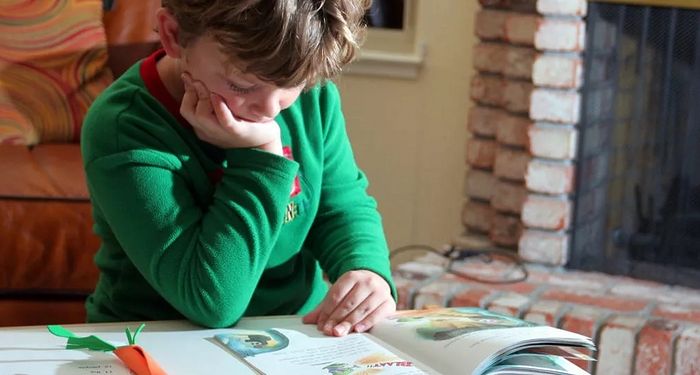
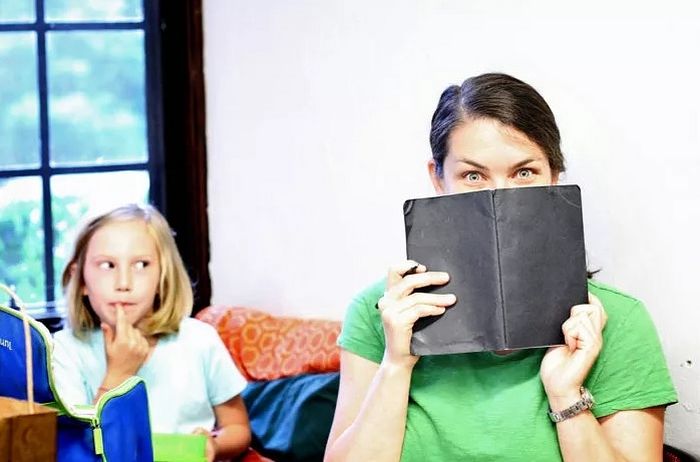
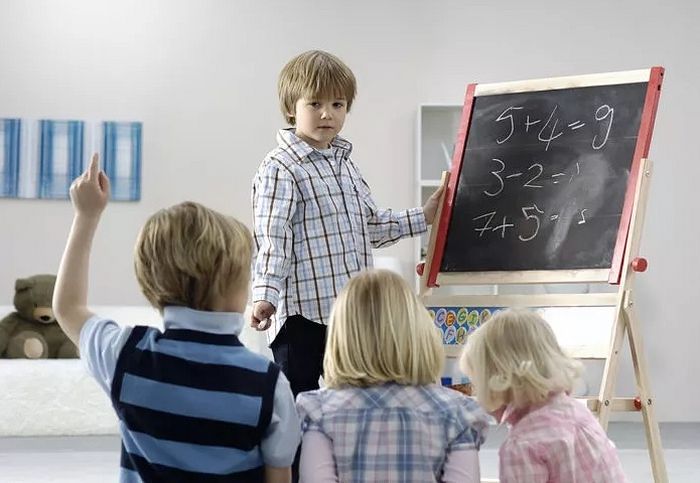
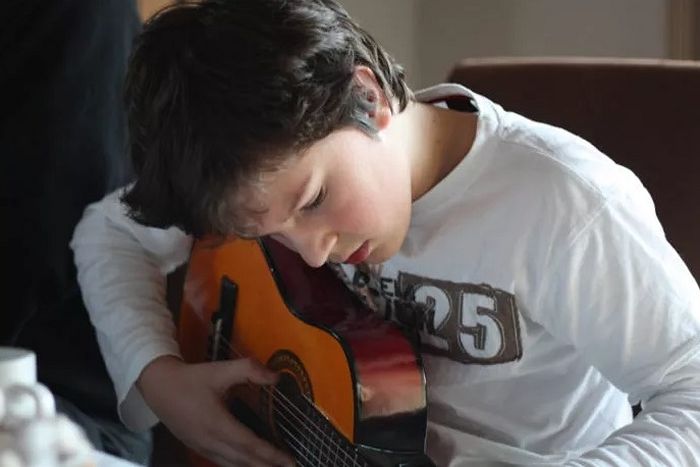
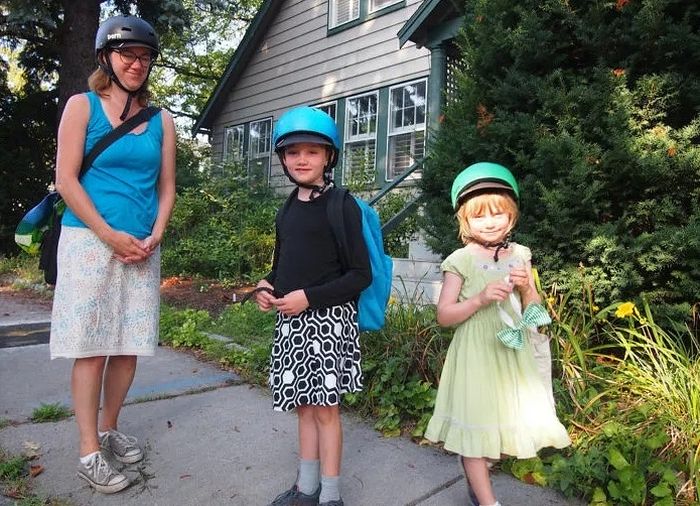
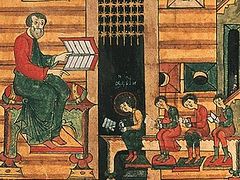
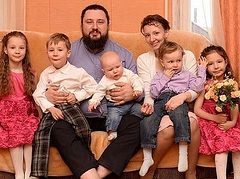
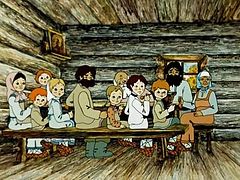
LOL. Yeah, it absolutely does. I'm a 23 year old man who has gone to some community college and the history classes, even here in Texas (a very conservative state) basically began with the Professor ranting for 10 minutes about Conservatives every day. It's almost as if it was part of the course rather than his own opinions... 4 year Universities are way way worse. Growing up in this generation I will definitely be home schooling my children, the propaganda in schools these days is so thick I can taste it.